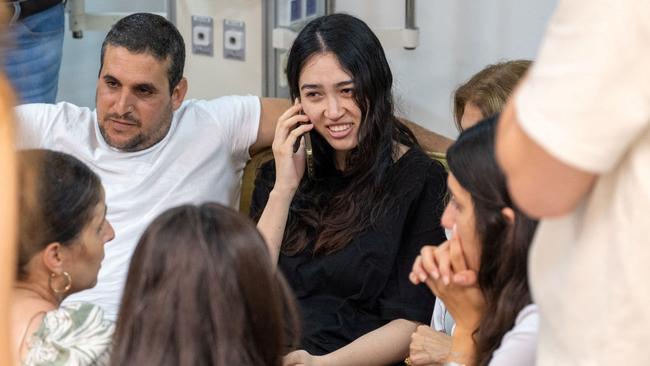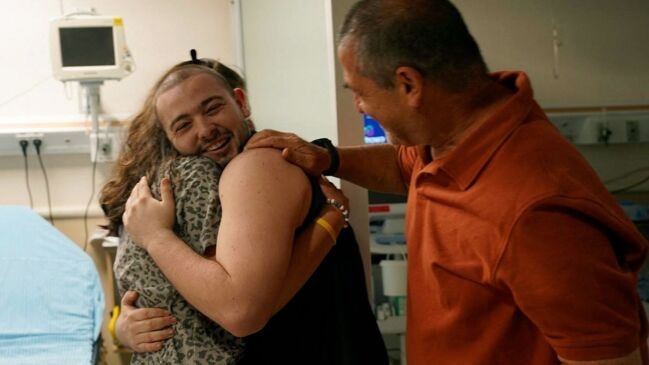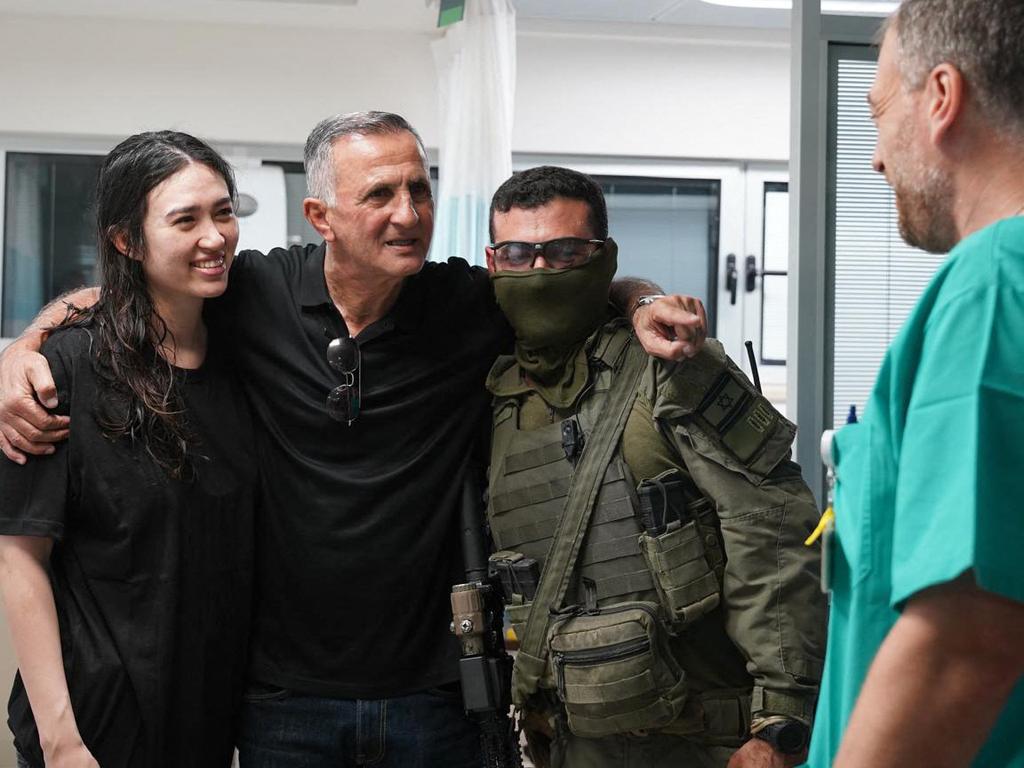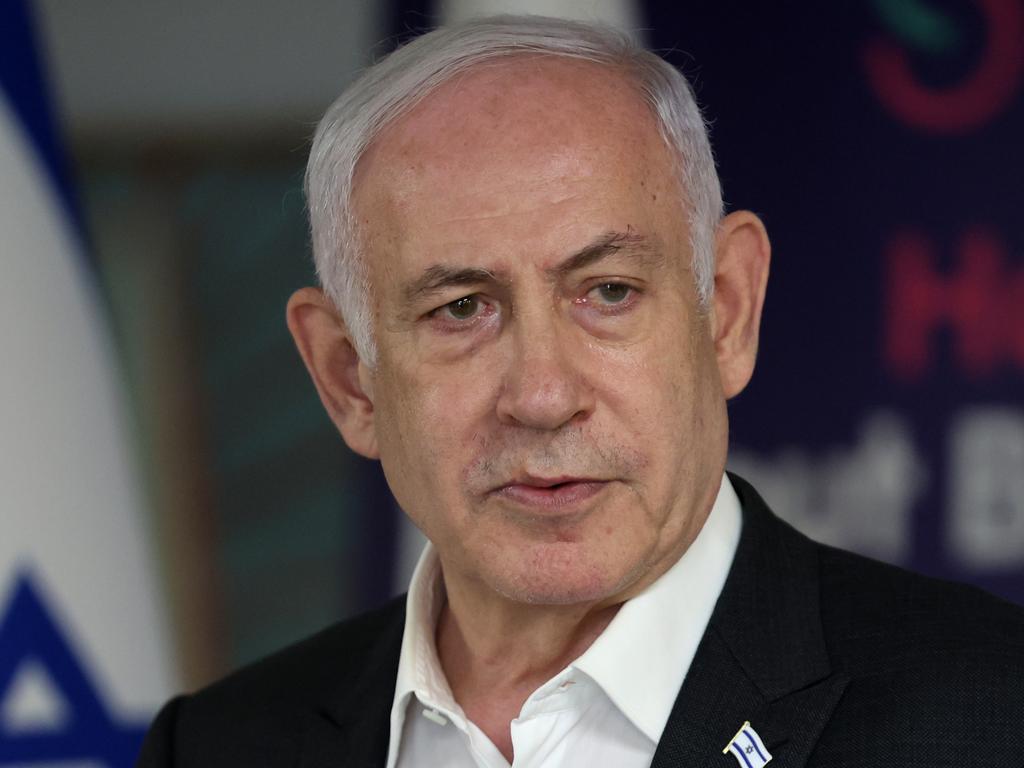Rescued Israeli hostages describe punishments, fear and isolation
For six months, the three Israeli men lived in a single dark room, sleeping on mattresses on the ground and were punished if they broke their captors’ strict rules.

For six months, the three men lived in a single dark room, sleeping on small mattresses on the ground.
Their sole contact with the outside world came from the guards who brought them food and at times abused them. They could hear the Gazan family that lived downstairs, including children, but never met them. One day, when the family went out, they were allowed downstairs to use the kitchen.
Their captors doled out punishments if the captives didn’t follow their strict rules, including locking them in the bathroom and piling blankets on them during the hot summer. They repeatedly threatened to kill them.
The hostages played cards, studied Arabic, taught each other Hebrew or Russian and kept time in journals. The three became close friends, and it was that bond that helped them through the ordeal.
Their guards at times told them that no one cared about them or was coming for them.
But one day, they were allowed to watch Al Jazeera’s Arabic broadcast and saw a rally in Tel Aviv by the families of the hostages. One of them spotted his own face among those whose freedom was being demanded. It also happened to be his birthday, which he knew because the captives had a notebook and were able to keep track of the date.
“It made him feel he hadn’t been forgotten,” said Aviram Meir, the uncle of one of the hostages.

When Israeli special forces burst into a building in central Gaza on Saturday in a high-risk daylight operation, they got to the room where Almog Meir Jan, 22 years old, Andrei Kozlov, 27, and Shlomi Ziv, 41, had spent most of their time since they were taken captive from a music festival in Israel in the Hamas-led attacks on Oct. 7.
The account of their time as captives in Gaza is based on interviews with relatives of the hostages, and Israeli security and medical officials. Some of the details are being reported for the first time.
Much remains to be revealed about what the three men and Noa Argamani, 26, who was also taken captive at the music festival and rescued in the same operation from a building about 200 yards away, went through as captives. Relatives of the hostages said they were advised to not probe for details, and expect to learn more about their loved ones’ ordeals as time passes.
Israeli security officials have asked the hostages and their relatives to keep details of their captivity a secret.
A full account of the abuses suffered by other hostages who were released earlier only emerged more than a month after their release. They have described being kept in tunnels underground, as well as psychological, physical and sexual abuse.

The four hostages who were rescued on Saturday smiled in videos released from their return to Israel and their recovery in an Israeli hospital. None looked emaciated as they were greeted by family and friends.
But a doctor who has been treating groups of rescued or released hostages since Oct. 7 said that despite the initial positive assessments based on their cheerful demeanour on TV, they had endured “physical and mental torture.” Dr Itai Pessach, who is part of a team at Sheba Medical Center in central Israel and treated the hostages rescued on Saturday, said their initial appearances had a lot to do with the adrenaline running through their bodies, and jubilation on being released, he said.
Israeli security forces and the hostages identified Palestinian journalist Abdullah Aljamal, who lived in the apartment, as one of their captors. Abdullah and his father Ahmad Aljamal – a doctor and imam at a local mosque that is run by Hamas – were both killed during the operation. Their neighbours said they always knew that Abdullah Aljamal was affiliated with Hamas.

The rescue operation sparked heavy fighting in the crowded streets of Nuseirat in central Gaza. Palestinian health authorities said 274 Gazans were killed and almost 700 injured from air strikes, shelling and gunfire. The Israeli military said about 100 Palestinians were killed or wounded, including Hamas militants and civilians caught in the crossfire.
The Biden administration is pushing Hamas and Israel to accept a deal that would see the war come to a halt and the release of hostages being held in Gaza. Many of the relatives of those being held captive support such a deal, as do relatives of the four hostages recently rescued.
Pessach said it is likely that the captives’ weight fluctuated during their captivity due to fear, stress and maltreatment. He said they showed signs of having suffered muscle atrophy and malnutrition and have lost the ability to perform certain activities.
“We’ve heard stories that are beyond anything you can imagine,” Pessach said. When the three male hostages arrived in Israel they looked freshly shorn – well groomed, with buzzed heads and clean beards.
Aviram Meir, the uncle of Meir Jan, said the three were able to groom themselves while in captivity. He described his nephew’s skin as pale.
“They hadn’t seen the sun for eight months,” he said.
The successful rescue operation will force Hamas to change how it hides hostages, but won’t necessarily increase the harshness of conditions in which they are held, said Younis Al-Zuraie, a Palestinian political analyst.
“They will likely ensure that no more than one hostage is in the same location and will move hostages frequently to avoid detection. Their security apparatus will manage these arrangements,” Al-Zuraie said.
It isn’t clear yet where the three male hostages were held before moving to the home where they were rescued. Argamani had been held in homes with other hostages before arriving at her final place of captivity. Other released hostages said they were held underground in tunnels.
U.S. intelligence officials in Israel have been helping to locate hostages, according to people familiar with the matter.
The fact that the three male hostages were kept together for such a long period without a rescue mission shows the high level of intelligence necessary to pull one off, said Avi Kalo, a former hostage-affairs commander in the Israeli military.
“They need to be verified with high standards of intelligence,” he said. – Abeer Ayyoub and Saleh al-Batati contributed to this article.
Dow Jones







To join the conversation, please log in. Don't have an account? Register
Join the conversation, you are commenting as Logout